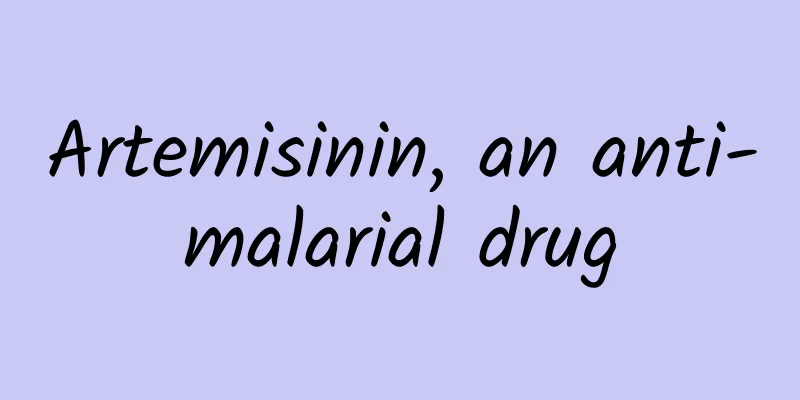A woman drank this tea for 2 years and the lining of her large intestine turned black! Many people use it to treat constipation

|
Expert of this article: Zhao Weitong, attending physician of the Affiliated Hospital of the NCO School of the Army Medical University (formerly the 260th Hospital), Master Reviewer of this article: Chen Haixu, Deputy Director and Master Supervisor of the Second Medical Center of PLA General Hospital Have you ever experienced the pain of constipation? A woman in Meizhou, Guangdong, took intestinal cleansing tea on her own for two years due to long-term constipation and abdominal bloating. As a result, she was diagnosed with melanosis coli. Weibo screenshot Why does drinking this tea make the intestines turn black? Are intestinal cleansing products really useful? Let's take a look. Why do intestines turn black? Melanosis colonic (MC) refers to a mucosal pigmentation lesion in which lipofuscin-containing macrophages exist in the lamina propria of the colonic mucosa. It manifests as tiger-skin, leopard-skin or patchy changes under colonoscopy. It is a non-inflammatory, benign and reversible lesion. Lipofuscin is a yellowish-brown pigment that contains 50% lipids. It is usually found in the cells of the elderly, malnourished people, and people with chronic wasting diseases. Therefore, it is also called senile pigment and consumptive pigment. These indicate that colon melanosis is a disease related to the aging of the body's tissue cells, which causes damage to cell mitochondria, affects intestinal energy metabolism, and leads to slower intestinal motility. Melanosis coli grades: Grade I is light brown, similar to leopard skin, and blood vessels of the intestinal mucosa are vaguely visible in the pigmented area, mostly occurring in a certain section of the intestinal mucosa; Grade II is dark brown, and blood vessels are difficult to see in the pigmented area, which is common in most colon mucosa; Grade III is dark brown in color, and vascular patterns are invisible in the pigmented area, which is more common in the pancolonic type. Does this disease increase the risk of cancer? Studies by Willems et al. showed that melanosis coli is often associated with chronic constipation and the use of anthraquinone laxatives. Intestinal cleansing tea contains some anthraquinone laxative ingredients, and anthraquinone laxatives may stimulate colon cells to cause apoptosis. A large number of apoptotic cells are phagocytosed by macrophages, and macrophages cannot completely digest the remnants of apoptotic cells, resulting in lipofuscin pigment deposition and the formation of colon melanosis. Melanosis coli itself is not a precancerous lesion, but long-term use of laxatives such as intestinal cleansing tea can stimulate the inflammatory response and pigmentation of the intestinal mucosal epithelial cells, damage the intestinal mucosa, and cause a large number of colon epithelial cells to die, which will stimulate cell proliferation and may grow into adenomatous polyps, which is a precancerous lesion. Therefore, there may be a certain connection between melanosis coli and colorectal cancer. In addition, melanosis coli is also related to inflammatory bowel disease, colon diverticulum, hemorrhoids, ischemic bowel disease, telangiectasia and other diseases. Are colon cleansing products a waste of money? Colon hydrotherapy It refers to the process of injecting clean water into the large intestine through an instrument, and achieving the purpose of cleansing the intestine through the water's cleansing effect on the inner wall of the large intestine and promoting peristalsis of the large intestine. However, the intestinal microecology (including bacteria, fungi, viruses, etc.) is a large and complex ecosystem, which requires various balances to achieve stability. This type of hydrotherapy may remove some toxins, but it is more likely to affect the intestinal microecology, thereby affecting intestinal digestion, absorption and motility, and may cause or aggravate constipation. Probiotics products There are many such products, including various beneficial bacteria. These bacteria cannot tolerate gastric acid and bile, so they may be almost eliminated in the stomach and duodenum. Very few bacteria reach the large intestine, so the therapeutic effect on constipation will be slightly worse. As mentioned above, the problem of intestinal microecological balance does not mean that the more probiotics there are, the healthier the body is. On the contrary, it may destroy the balance of intestinal microecology and cause constipation or diarrhea. What should I do if I am troubled by constipation? Melanosis coli is a reversible disease. There is currently no specific medicine or treatment. It can only be treated by eliminating the cause, including stopping the use of laxatives and scientifically treating constipation. 1. Develop good bowel habits, usually in the morning or evening. Once a certain pattern is formed, constipation will usually improve. 2. Adjust the dietary structure and eat more dietary fiber such as konjac, pectin, vegetables, and fruits. This will help promote gastrointestinal motility. Because of its strong water absorption, it can fully soften the stool and prevent constipation. 3. Drink water in moderation. The function of the large intestine is to absorb water and vitamins. When you drink less water, the large intestine will still absorb the already dry intestinal contents, causing the stool to become dry and hard, which is difficult to excrete. It will further absorb water in the intestine, leading to a vicious cycle and constipation. Therefore, drinking more water can help relieve constipation. 4. Exercise more. Exercise can increase intestinal motility, speed up the passage of food through the intestines, reduce absorption, and have a laxative effect. 5. Use medication rationally. If necessary, add gastrointestinal motility drugs (domperidone tablets, mosapride tablets) and osmotic laxatives (lactulose, etc.). Rationally use oily laxatives (suppositories, etc.) and use oily laxatives as little as possible. The pictures in this article with the "Science Popularization China" watermark are all from the copyright gallery. The pictures are not authorized for reprinting. |
>>: When birds fly south, which “South” are they heading to?
Recommend
It’s 2022, why are people still spreading these COVID-19 rumors?
Recently, with the recurrence of the COVID-19 pan...
How much does it cost to attack a server, and what is needed to attack a 200g server?
How much does it cost to attack a server, and wha...
Share a sideline money-making project that is particularly suitable for office workers, mothers, and novices, earning a steady 100+ per day
Making money on the Internet can surprise you. Be...
Activity operation theme planning and front-end gameplay design
After implementing and determining the backend st...
Complete set of skipping rope teaching videos - Children's beginner skipping rope teaching videos (from basics to advanced) Baidu cloud download
Complete set of skipping rope teaching videos - C...
The monthly download volume of Bullet SMS is less than 6,000. Will Alipay be its life-saving straw?
Bullet Messenger was forced to take a roller coas...
Introducing the attention mechanism into RNN to solve sequence prediction problems in five major areas
[[198915]] The encoder-decoder structure is popul...
How much does it cost to customize the Shiyan flower mini program? What is the price of customized flowers in Shiyan mini program?
In order to better penetrate into various industr...
The creature in the world that looks most like a dragon is actually a "nerd"!
15 million years ago, there lived a group of slen...
How to create a Douyin account and generate traffic and monetize it?
The author of this article once created a video o...
Why do the things we longed to grab on Double Eleven not seem so attractive after we get them?
Review expert: Li Xianhong, National Level 2 Psyc...
Case Analysis | How to achieve “unity of knowledge and action” when writing a promotion plan?
Today we are going to talk about writing a planni...
How does Xiaohongshu build a user rating system?
1. What are the user upgrade standards (parameter...
Weibo marketing promotion strategy, share these 3 points!
Weibo may not bring direct sales, but it can subt...
About Tint Color Properties
Tint Color After iOS 7, UIView added a new tintCo...









![[Special Topic] Why are WeChat red envelopes so popular? Here are some unknown facts behind it!](/upload/images/67ebee61b99a4.webp)